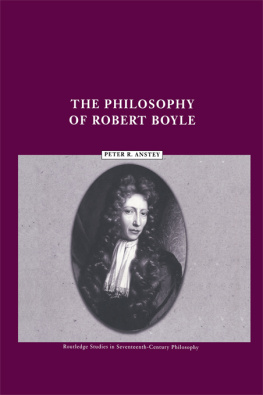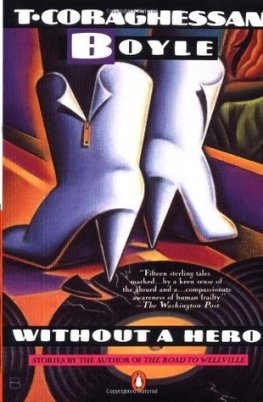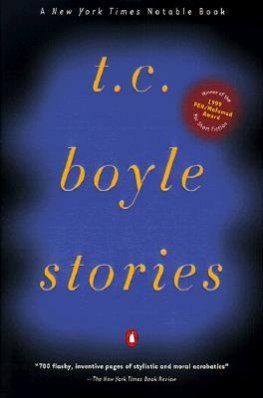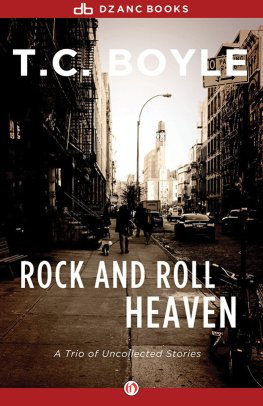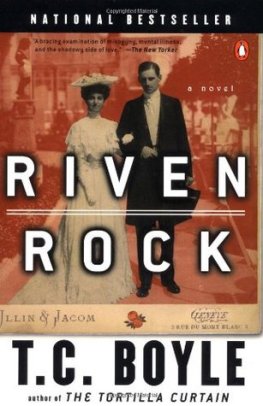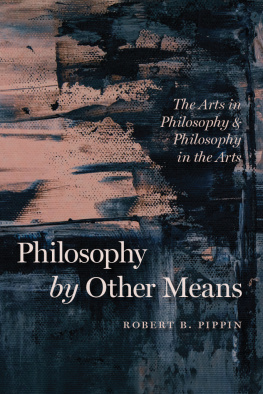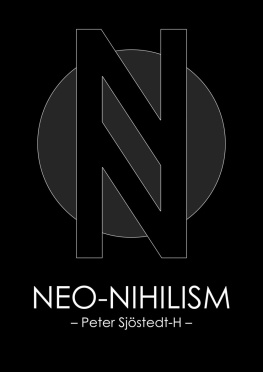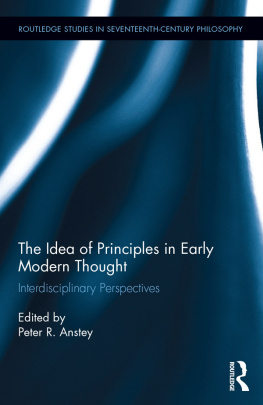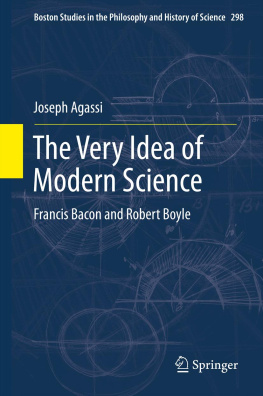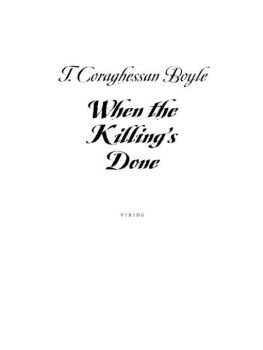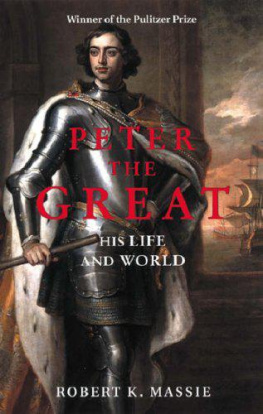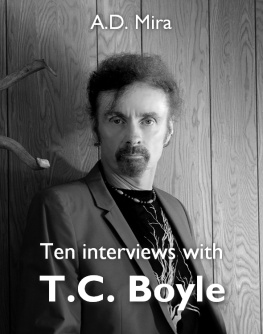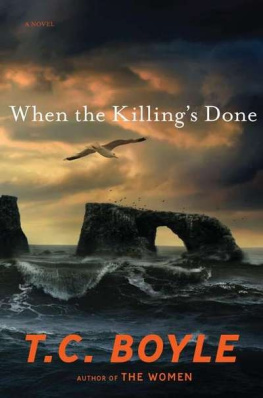Anstey Peter R. - The Philosophy of Robert Boyle
Here you can read online Anstey Peter R. - The Philosophy of Robert Boyle full text of the book (entire story) in english for free. Download pdf and epub, get meaning, cover and reviews about this ebook. publisher: Taylor & Francis Group, genre: Science. Description of the work, (preface) as well as reviews are available. Best literature library LitArk.com created for fans of good reading and offers a wide selection of genres:
Romance novel
Science fiction
Adventure
Detective
Science
History
Home and family
Prose
Art
Politics
Computer
Non-fiction
Religion
Business
Children
Humor
Choose a favorite category and find really read worthwhile books. Enjoy immersion in the world of imagination, feel the emotions of the characters or learn something new for yourself, make an fascinating discovery.
- Book:The Philosophy of Robert Boyle
- Author:
- Publisher:Taylor & Francis Group
- Genre:
- Rating:4 / 5
- Favourites:Add to favourites
- Your mark:
- 80
- 1
- 2
- 3
- 4
- 5
The Philosophy of Robert Boyle: summary, description and annotation
We offer to read an annotation, description, summary or preface (depends on what the author of the book "The Philosophy of Robert Boyle" wrote himself). If you haven't found the necessary information about the book — write in the comments, we will try to find it.
The Philosophy of Robert Boyle — read online for free the complete book (whole text) full work
Below is the text of the book, divided by pages. System saving the place of the last page read, allows you to conveniently read the book "The Philosophy of Robert Boyle" online for free, without having to search again every time where you left off. Put a bookmark, and you can go to the page where you finished reading at any time.
Font size:
Interval:
Bookmark:

The Philosophy of Robert Boyle
This book presents the first integrated treatment of the mechanical or corpuscular philosophy of Robert Boyle, one of the leading English natural philosophers of the Scientific Revolution. It focuses on the concepts central to Boyles philosophy, including the theory of matter and its qualities, causation, laws of nature, motion and the incorporeal.
The book is divided into two partsthe first examining the manner in which Boyle distinguished between various types of qualities, his view on the perception of these qualities and the ontological status of the sensible qualities. The second part examines Boyles mechanism in general. Through detailed examination of Boyles conceptions of motion, laws and space, it is argued that Boyle upholds a unique view of the causal interaction of natural bodies.
Boyle wrote as a natural philosopher and a committed experiementalist. This book is the first ever that is entirely given over to an exposition of his philosophy. It will therefore be of vital interest to any serious scholar of the history and the philosophy of science.
Peter R.Anstey is a postdoctoral fellow in the School of Philosophy at the University of Sydney. He has had a long-term interest in the natural philosophy of Robert Boyle and is co-editor of the Boyle newsletter.
Routledge Studies in Seventeenth-Century Philosophy
1 The Soft Underbelly of Reason
The passions in the seventeenth century
Edited by Stephen Gaukroger
2 Descartes and Method
A search for a method in meditations
Daniel E.Flage and Clarence A.Bonnen
3 Descartes Natural Philosophy
Edited by Stephen Gaukroger, John Schuster and John Sutton
4 Hobbes and History
Edited by J.Rogers and Thomas E.Sorrell
5 The Philosophy of Robert Boyle
Peter R.Anstey
The Philosophy of Robert Boyle
Peter R.Anstey

First published 2000
by Routledge
11 New Fetter Lane, London EC4P 4EE
Simultaneously published in the USA and Canada
by Routledge
29 West 35th Street, New York, NY 10001
Routledge is an imprint of the Taylor & Francis Group
This edition published in the Taylor & Francis e-Library, 2003.
2000 Peter R.Anstey
All rights reserved. No part of this book may be reprinted or reproduced or utilised in any form or by any electronic, mechanical, or other means, now known or hereafter invented, including photocopying and recording, or in any information storage or retrieval system, without permission in writing from the publishers.
British Library Cataloguing in Publication Data
A catalogue record for this book is available from the British Library
Library of Congress Cataloging-in-Publication Data
Anstey, Peter R., 1962
The philosophy of Robert Boyle/Peter R.Anstey.
p. cm.(Routledge studies in seventeenth-century philosophy; 5)
Includes bibliographical references and index.
1. Boyle, Robert, 16271691. I. Title. II. Series.
B1201.B434 A57 2000
192dc21 99059382
ISBN 0-203-46477-X Master e-book ISBN
ISBN 0-203-77301-2 (Adobe eReader Format)
ISBN 0-415-22429-2 (Print Edition)
for Julia
Ex rerum Causis Supremam noscere Causam
Contents
PART I
The theory of qualities
PART II
Matter in motion
Preface
A close friend of Robert Boyles once said of him that he was a corpuscularian without Epicurus. I believe this to be a particularly apt description of his philosophy, but its real import will not be immediately obvious to all. Boyle is not known as a philosopher. Most of us first encountered him in high school science when we learnt Boyles Law. Most philosophers know at least that he was a champion of the mechanical philosophy and of his impact on John Locke. But few know Boyle as a philosopher. Yet write philosophy he did. Though he did not write it in the distilled form of his contemporaries Hobbes and Locke. Instead he wrote as a natural philosopher, a committed experimentalist. This book is the first ever that is entirely given over to an exposition of that philosophy. It is my hope that it will not be the last.
The issues that most drew me to philosophy as an undergraduate were of a rather distilled metaphysical variety: laws of nature, causation and properties. The seminal influence here was (and still is) my teacher David Armstrong. It was only as I began seriously to read Boyle, with an eye on the secondary literature, that I began to realise that there is much work to be done in correctly articulating Boyles views on the very metaphysical issues which had so captivated me as an undergraduate. With the encouragement of Stephen Gaukroger, I began to chart Boyles intellectual context and to gain familiarity with Boyles vast oeuvre. It was at this point that I discovered that a renaissance in Boyle studies was well under way. Yet to my surprise I found that there are few studies, if any, that attempt to give a systematic interpretation of his corpuscular philosophy.
This study is an attempt, albeit a partial one, to fill that lacuna. It presents an exposition of how the various components of Boyles mechanical philosophy fit together. The primary focus is on the metaphysics of his natural philosophy: his theory of qualities, of motion and of laws and his integration of the various components of his ontology into a coherent world-view. And an attempt is made to interpret these in a way that is sensitive to the very fertile intellectual context with which Boyle was fully engaged. As such, this is a study in the history of philosophy, one which has hopefully been enriched by my earlier philosophical preoccupations.
with matter in motion. In expounding Boyles theory of qualities, I first detail the various distinctions that he made among the qualities and then discuss the criteria Boyle employs in order to distinguish between the mechanical and non-mechanical affections of matter. From there I proceed to the problem of the sensible qualities, examining first his views on perception and then the ontological status of the sensibles. Once the theory of qualities is set out, I turn to the theory of matter in motion. Much of what Boyle says about motion can be found stated, often more eloquently and accurately, in the writings of other mechanical philosophers. Yet there is one issue about which he wrote which has hitherto, to my knowledge, received scant treatment but which is of considerable interest. It is his role in the evolution of the notion of the state of a body. I use an analysis of this issue in Boyle as a way into a study of his mechanism, proceeding on to his understanding of space, laws of nature and concurrence. The final chapter deals with mind/body interaction.
The book is a revised version of my doctoral dissertation on Robert Boyle completed at the University of Sydney. The research would not have been possible without an Australian Postgraduate Research Award. The transcription from the Boyle Papers in Appendix 2 is reprinted here with the kind permission of the Johns Hopkins University Press. It first appeared in Peter Anstey, Boyle on Occasionalism: An Unexamined Source, Journal of the History of Ideas, 60, (1), 1999, pp. 5962.
It may be a little clichd to say that the debts accrued in undertaking a project such as this are too many to list. But it is true. The conversations, offhand suggestions, referrals to sources, the practical help, not to mention the general goodwill and encouragement that keeps one going, for all these things I am more than grateful. A special debt is owed to Stephen Gaukroger whose astute judgment and extensive knowledge of seventeenth-century ideas have helped me avoid numerous pitfalls and diversions. Michael Hunter has helped in many ways, not least through his technical knowledge of the Boyle archive. Thanks too go to those who have read and commented on various parts of the book in draft form: Eugenio Benitez, Keith Campbell, Alan Chalmers, Brian Ellis, Alan Gabbey, Keith Hutchison, the late George Molnar, John Schuster, M.A.Stewart and John Sutton. I would like to give special thanks to my friend Robert Urquhart whose unfailing support, particularly in bibliographic matters, has been an inspiration. Veronica Leahy, Barry and Jill Anstey and Rod and Janet West have given practical support; and Peter Alexander and Andrew Pyle kindly gave of their time to direct me in the very early stages of the project. Above all, however, I acknowledge the support and love of my wife Julia. I dedicate the book to her.
Next pageFont size:
Interval:
Bookmark:
Similar books «The Philosophy of Robert Boyle»
Look at similar books to The Philosophy of Robert Boyle. We have selected literature similar in name and meaning in the hope of providing readers with more options to find new, interesting, not yet read works.
Discussion, reviews of the book The Philosophy of Robert Boyle and just readers' own opinions. Leave your comments, write what you think about the work, its meaning or the main characters. Specify what exactly you liked and what you didn't like, and why you think so.

